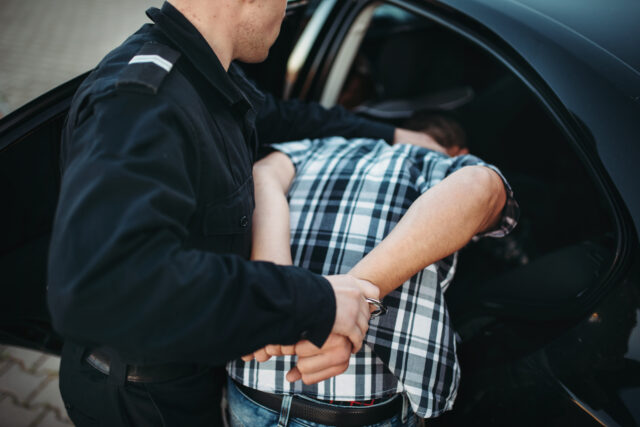

Although Texas has some of the most liberal gun regulations in the country, if you deliberately or inadvertently did something that violated them, you need the help of a skilled Dallas gun crime lawyer familiar with the law. Fortunately, you’re in the right place. Contact Spangler Law today.
As a constitutional carry state, most adults in Texas aren’t required to pass a background check, get a license, or complete firearm training to have a gun. Daring citizens can wear their guns in a belt holster due to their open carry rights. They also can legally carry concealed handguns.
Therefore, individuals charged with violating these lenient Texas gun laws experience serious consequences. In addition to fines, prison time, probation, and a lifelong criminal record, they could also lose their firearm possession rights.
A seasoned Dallas criminal lawyer from Spangler Law can defend you from prosecution and help you maintain your freedom as a Texas gun owner.
Importantly, Texas is a “stand your ground” state, meaning that a person has the right to protect themself and their loved ones if they believe that the life of either is in danger. Deadly force is allowed if:
Although it is legal to openly carry a concealed gun under Texas law, it is illegal to carry a concealed handgun without a valid concealed handgun license. This weapons offense is a Class A misdemeanor that can result in a punishment of up to one year in jail and up to a $4,000 fine. Unlicensed sales of firearms, as well as possession of a stolen firearm, are also Class A misdemeanors.
On the other hand, making a terroristic threat is a Class B misdemeanor. If convicted, a maximum penalty can include up to 180 days in jail and up to a $2,000 fine.
Felony gun crimes can include brandishing a weapon, unlawful gun possession, as well as when individuals carry a gun without a license if they have prior misdemeanor or felony convictions. Penalties for felony gun offenses typically include fines and a prison sentence.
Individuals discharging a firearm within a city with a population of 100,000 or more can be charged with a third-degree felony according to Texas Penal Code Section 22.05. This includes knowingly:
It’s also a third-degree felony for a convicted felon to possess a modern firearm.
Individuals using a firearm to commit a violent crime can be charged with a first-degree felony. These include aggravated assault, domestic violence, robbery, and sexual assault. Firearms violations include:
If you have been accused or arrested for firearm charges, you should contact an experienced gun crime lawyer as soon as possible. Gun crimes in the state of Texas are dealt with harshly. Getting a free consultation where you can develop a strong attorney-client relationship could be the first step in successfully fighting your weapons charge.
There are several firearms laws all gun owners should stay abreast of. For example, federal and state laws prohibit certain individuals from possessing firearms. Additionally, it is a crime to knowingly give, loan, rent, or sell a handgun to someone:
Furthermore, Texas Penal Code Section 46.05 prohibits the possession of explosives, machine guns, and sawed-off shotguns. These weapons are illegal to possess in Texas. An illegal firearm can also include zip guns, bombs, chemical dispensing devices, fully automatic machine guns, as well as armor-piercing ammunition or bullets.
While it is illegal simply to possess these types of weapons in Texas under firearm laws, discharging them against someone can result in additional gun charges. A person committing gun crimes against any federal or state law should contact a defense lawyer for a confidential consultation.
The punishment for a gun offense varies based on the level of the felony or misdemeanor and whether you are a first-time offender or have a prior history.
The penalties are as follows:
As soon as you are arrested or are under investigation for crimes involving a handgun or other weapon, you should retain the services of a firearms defense team.
After you receive your gun charge, the process begins with an initial court appearance, where you are informed whether you are eligible for bail and for how much. You do this within 48 hours of being arrested.
The prosecuting attorney will file formal charges, and you will attend an arraignment where you hear the charges and enter a plea of “guilty” or “not guilty.” For a felony, the prosecutor will seek an indictment from the grand jury. Before the trial, however, there are usually months of conferences and pre-trial hearings where your lawyer may attempt to negotiate a plea bargain for you.
If you plead “not guilty” and no plea agreement is reached, then your case will go to trial. During a jury trial prosecutor presents evidence to a dozen jurors to persuade them that you did what you are accused of. The jury renders an indictment if the prosecutor is successful beyond a reasonable doubt. If the jury is not convinced, the charges are dismissed.
Although you can hire an attorney to handle your case at any point in the process, having a lawyer with legal specialization in gun rights from the onset of your case is optimal. A person convicted of a weapons charge will face certain restrictions on their rights to own a deadly weapon and may be subject to prison time or community supervision.
Don’t face gun charges on your own. Spangler Law stands ready to effectively fight for you and represent your interests, every step of the way. Contact us for a free consultation today with a Dallas gun crime Lawyer.
© 2026 Spangler Law. All rights reserved. Attorney advertising.